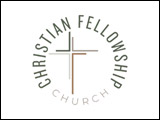This Rethinking Lifestyles column has often promoted healthy living, buying local, growing your own and things like composting, but have you ever considered honey in this category? There has always been a belief that honey is a pure natural healthy product but I hate to tell you that this is not always true.
Recently there has been a major furor in the Canadian beekeeping/honey industry because some honey packers are importing cheap foreign honey, likely mostly from China. And there is a lot of adulterated honey on the world market. To give you an idea, in the Far East beehive numbers have gone up slightly but “honey” production has gone up by a huge amount. How much of that huge amount is pure honey and how much is added high fructose syrup or some other artificial cheap synthetic stuff? Remember the adulterated baby milk fiasco in China?
One of the silly things about the Canadian honey regulations is that the term “Canada No 1” does not necessarily mean that it is Canadian honey. In fact 100% imported honey can legitimately be labeled “Canada No 1” as long as it is packaged in an officially inspected plant and it meets moisture and cleanliness standards. If the honey is a blend from different countries, including Canada, the label is supposed to list the countries it comes from in order from the most to the least. If the honey is 100% imported the label has to say ‘imported from country name’, but usually the “Canada No 1” is in large bold print on the front whereas the country of origin is usually hidden in small print on the back.
The problem that many of our Canadian beekeepers are facing today is that there is so much cheap foreign honey on the world market that honey packers are not even buying our Canadian honey. Right now, there are beekeepers in Canada who are unable to sell their crops, or must do so below cost and are quickly becoming bankrupt. Some will be unable to provide for their bees and their bees may die before they get a chance to make this years honey crop. Many beekeepers still have their entire 2015 crop in stock and some are even having to sell their equipment to put food on the table.
So, how can you help? The Bee Maid brand of honey is sold by a co-operative owned by Manitoba, Saskatchewan and Alberta beekeepers and their honey is guaranteed 100% Canadian. Every incoming shipment from their beekeeper members is thoroughly tested for a variety of things including and especially agricultural chemical residues. You can also buy from a local beekeeper – perhaps at a farmers market – but bear in mind that selling honey ‘at the farm gate or farmers market’ does not necessarily mean the honey, or buildings and equipment, meet Canadian Food Inspection Agency (CFIA) standards. Get to know your local beekeeper so you can be confident of his product. And you could always ask if he is a registered beekeeper and whether his honey building is inspected by CFIA – it’s the equivalent of having a certified kitchen.



